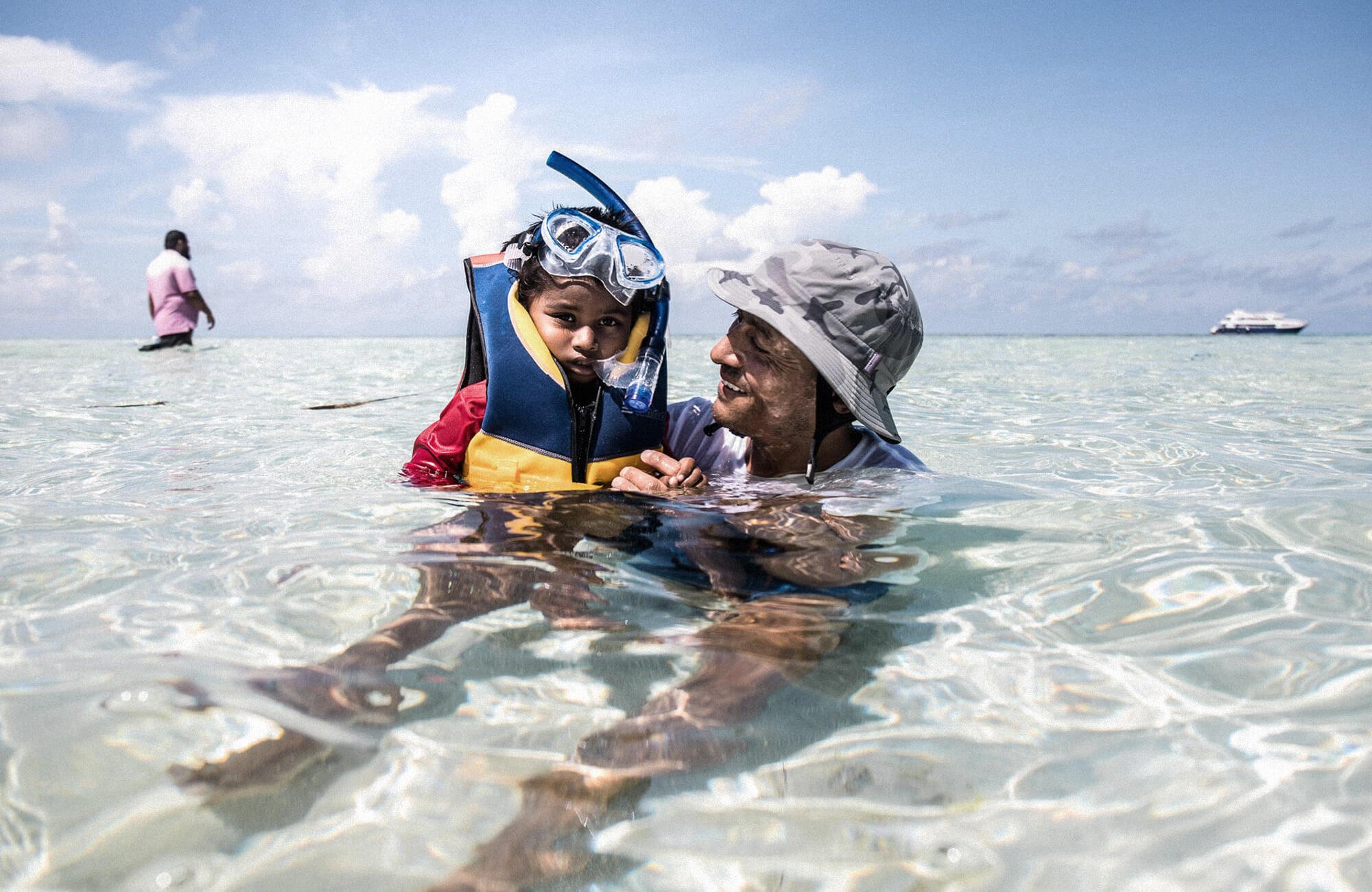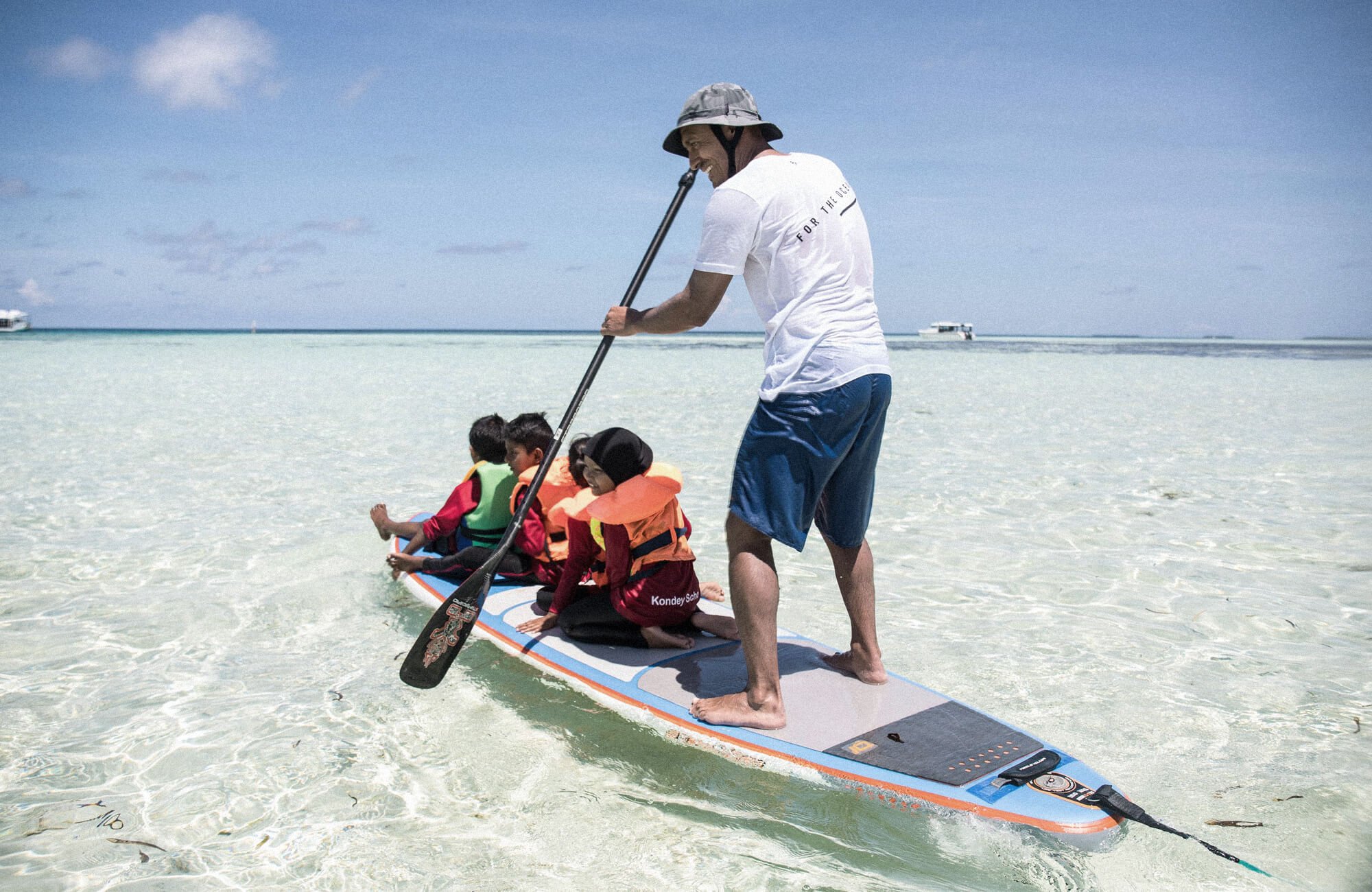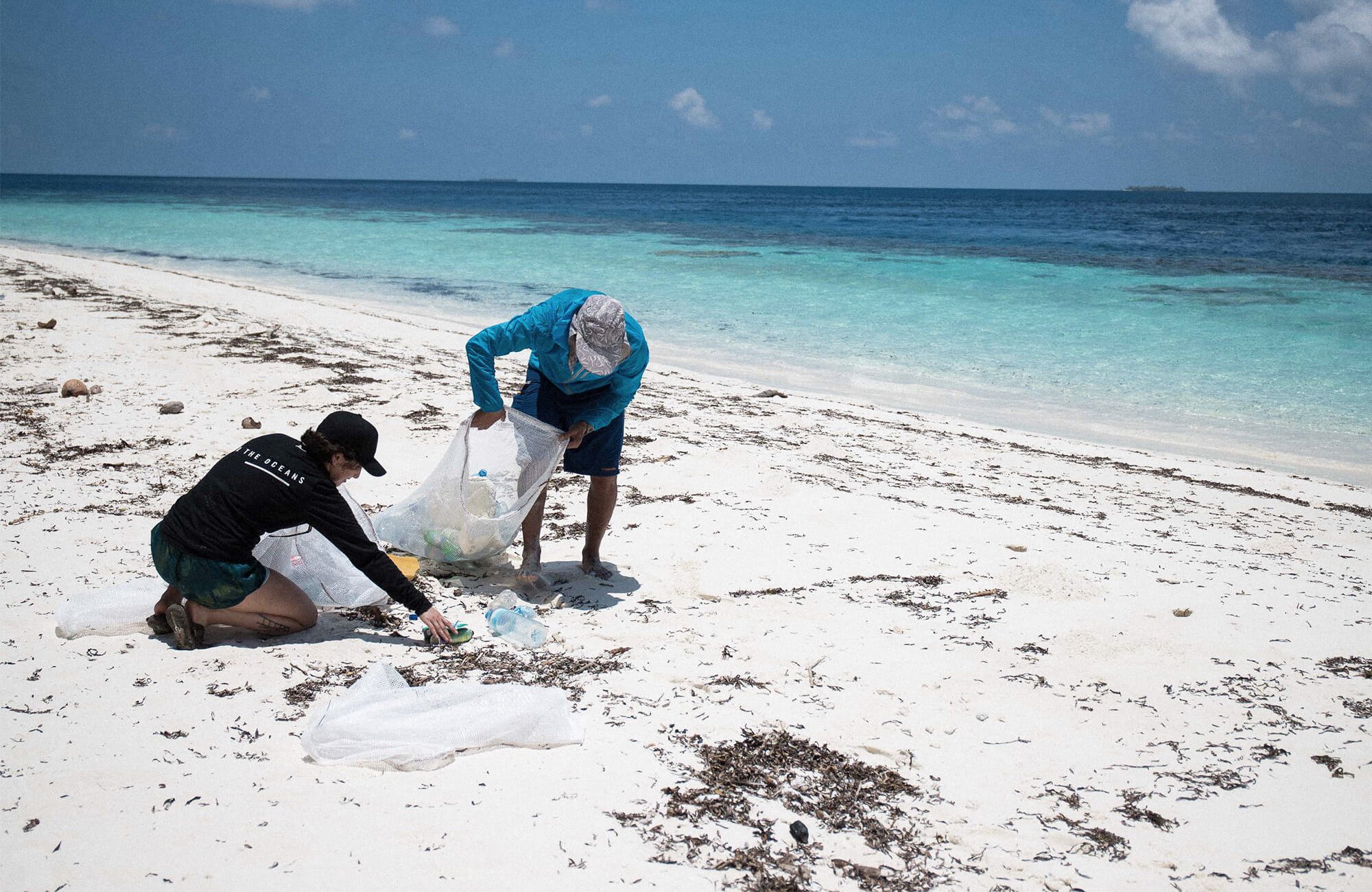People: Ramón Navarro
Ramón Navarro grew up beside the ocean at Punta de Lobos in Chile, helping his father with his fishing business and learning to dive at an early age. He later built a global reputation for riding giant waves, including one of the biggest barrels ever surfed at the legendary Cloudbreak in Fiji.
Working to preserve and protect the oceans, Ramón’s actions off the board speak just as loudly. A committed activist, Ramón has worked on numerous projects to safeguard Chile’s vibrant surf environment and protect its coastline, one of the longest in the world. We caught up with him between breaks to chat more.
“I had a connection with the ocean way before I began to surf. It was in my blood, in my DNA.”
YOU GREW UP NEXT TO THE OCEAN IN CHILE — TELL US A BIT MORE ABOUT THAT.
It was the best experience I have ever had. I learned the importance of respecting nature from a very young age. It was not my father’s intention to teach me this, for him it was simply a profession. He was a fisherman, and it was through his work that he taught me to respect marine life. The connection that I have with the oceans is bound to my life with my father. Growing up close to the sea at that time also allowed me to see more of the beauty of these places. What is left is the memory of beaches without so much pollution, and without so much human impact.
DO YOU REMEMBER THE FIRST TIME YOU SURFED?
Yes, perfectly. I had a connection with the ocean way before I began to surf. It was in my blood, in my DNA. The sea was already my friend, and my companion. The logical evolution of a fisherman was this. To be able to understand the water from this point of view. The first time that I got on a surfboard I was 13 years old when a surfer came from the city – he was the the first person to lend me a board.
DOES EVERYONE ON THE COAST OF CHILE SURF AND SWIM, OR IS IT NOT SO COMMON?
Back then it was not common at all. Nowadays there are teams, schools, and places to learn. Most people who surfed then were people who came from Santiago, not fisherman’s children. However, it has become more and more popular for both locals and tourists to surf.
WHAT IS YOUR BEST MEMORY FROM PARLEY OCEAN SCHOOL?
Getting the children into the water, by far. To be able to introduce them to the ocean and to see how positive their reaction affected me very deeply.
WHY DO YOU THINK IT’S IMPORTANT FOR CHILDREN – AND PEOPLE IN GENERAL – TO EXPERIENCE THE OCEAN FOR THEMSELVES?
It is as important for children as it is for people in general, because when one gets to know and understand a place you begin to love and care for it. When you live and respect it, you will protect it. It is not something external, it is like taking care of your backyard.
DESCRIBE YOUR PERFECT WAVE.
May 25 of 2018 in Fiji. You know how one dreams their entire life about an ideal moment? It has happened to me twice. Both in Fiji.
The ocean gave me this gift for helping to protect it, and for respecting it. I feel it, and I have the responsibility to spread this message. Magical things happen when you have such a strong connection with the sea. It’s almost like you begin to speak the same language. When you understand the ocean like a whole being instead of just a single wave.
WHAT CAN WE DO TO BRING BACK CLEAN WAVES?
Encouraging younger generations to get out there, do sports, and connect with nature. When one understands the ocean because of culture, family, or simply for understanding it, when you get on the same level as it, amazing things happen. You can have all the material things, but in the ocean we are all the same. In nature we are all the same. Being in contact with it and developing the patience to listen to what it has to say teaches you a lesson in humility. If human beings could have that vision of the world, everything would change.
If the ocean is setting limits, one should understand it. Today we think of the sea as either a source of resources and economic growth or a trash can. That is lack of connection. The only ones that will lose if we continue to think this way are going to be us. Nature is in charge. What we need is a different vision. A vision that comes from that place of humility.








